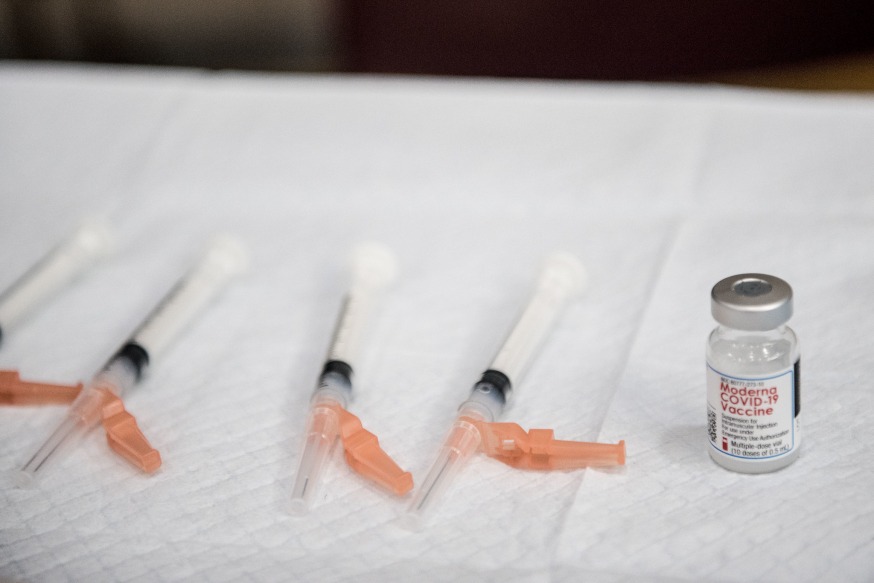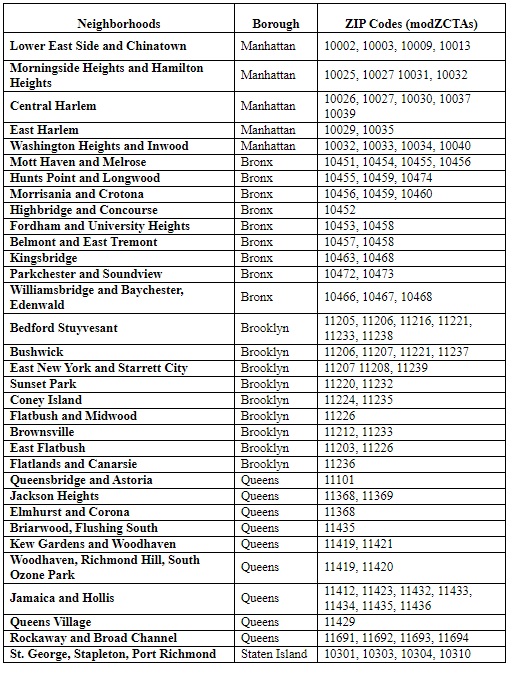
COVID-19 Vaccine (Michael Appleton/Mayoral Photography Office)
Feb. 1, 2021 By Christina Santucci
Several Queens neighborhoods have been added to a priority list for coronavirus vaccine distribution, city officials announced Sunday.
The city announced that it has added four Queens districts–plus two in Brooklyn–to its vaccination priority list, including Jackson Heights and East Elmhurst; Kew Gardens and Woodhaven; Richmond Hill and South Ozone Park; and Queens Village.
The city plans to increase outreach to address vaccine hesitancy and add vaccination sites in these priority zones, although no information about any new sites was available Sunday.
The additions increase the number of priority districts to 33 — previously there were 27.
The city’s Task Force on Racial Inclusion and Equity has identified the 33 priority neighborhoods, which takes into account factors like the virus fatality rate, crowded living conditions and the number of essential workers living in the communities.
Several Queens areas have already been identified as priority zones by the task force, including Queensbridge and Astoria; Elmhurst and Corona; Rockaway and Broad Channel; Jamaica and Hollis; and Briarwood/Flushing South.
“What’s clear is the status quo does not make sense, and we have to do some things differently,” Mayor Bill de Blasio said. “We have looked at the neighborhoods in greatest need and we’ve actually expanded that set of neighborhoods.”
The mayor said that residents would be prioritized for appointments at sites in the 33 neighborhoods — with specific hours and slots set aside for them. Furthermore, essential workers living in priority neighborhoods would soon be able to be vaccinated with family members.
“That group of 33 neighborhoods are where the most vulnerable people are — vulnerable because that’s where the deaths were,” de Blasio said.
He said residents in these area are also vulnerable because many don’t have faith in the health care system and also lack access to it.
“We have a history of understandable distrust and hesitancy toward vaccination,” he said. “All of these things have to be overcome,” de Blasio said.
Council Member Daniel Dromm thanked the mayor Sunday morning for prioritizing additional areas of his district, which he described as the “epicenter of the epicenter” of the pandemic.
“Now that they’ve acknowledged that, now we need the details: where, when and how,” Dromm said.
De Blasio also said Sunday that the city’s vaccine appointment website would soon have translations in 10 major languages, including Arabic, Bengali, Korean, Urdu and Haitian-Creole.
Dromm said that making that information available in multiple languages was vital to communicating with residents of his district.
“There is already a hesitancy among some of the people who live here and mistrust in the government,” he said. “Having it in their own language is even more important.”
The announcements came during a news conference where the mayor released citywide demographic data, which he said showed a “profound disparity” in who was getting vaccinated.
The data revealed that the plurality of people who have already been vaccinated were white. The data showed that 48 percent of city residents were white, 15 percent Asian, 15 percent Latino, and 11 percent Black. The city also did not have data on 40 percent of recipients.
In comparison, the U.S. Census estimated in 2019 that the city’s population is 32 percent white, 14 percent Asian, 29 percent Hispanic or Latino and 24 percent Black.

